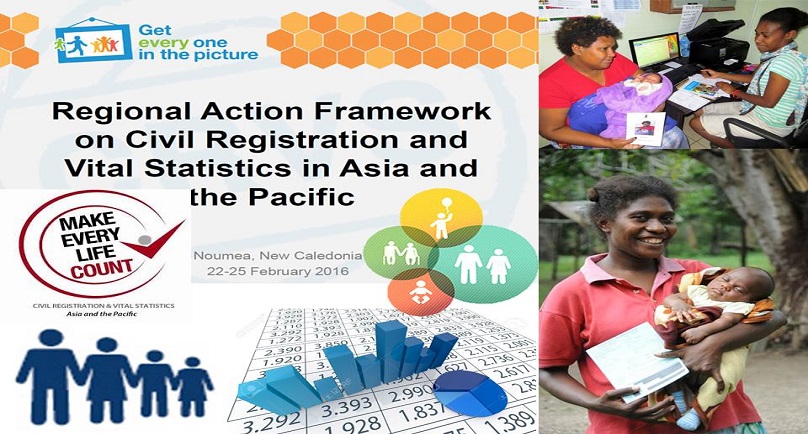by Juanita Nonwo – EM TV Online
Estimates of births, deaths and other data approximations are as close as we can get to highlighting the scale of a certain problem or scenario, but that does not substitute real data.
There exists a risk, that incorrect estimated data used for development planning could lead to poorer health and development outcomes.
The UN Secretary General, Ban Ki-moon, on last years’ world statistics day, stressed the importance of reliable and timely statistics and indicators in order to achieve new development agendas.
In a first regional meeting of its kind in Noumea, New Caledonia, this week, expertise in the Pacific ranging from registrars to statisticians, including health information specialists, have gathered to discuss ideas on improving civil registration and vital statistics systems and data.
The conference which is on “Civil Registration and Vital Statistics in the Pacific Islands – Standards, best practice and lessons learnt” is a week-long conference providing a platform for the major sectors within the region to share and discuss experience and lessons from the first five years of the Pacific Vital Statistics Action Plan – which was developed by Brisbane Accord Group (BAG), partners to improve vital statistics in the Pacific, and improve coordination between development partners.
Since the creation of the Pacific Vital Statistics Action Plan, significant changes have been observed in counties such as Nauru, American Samoa and Cook Islands who have recently released detailed analysis reports.
Vanuatu and Solomon Islands also saw the introduction of new computerised systems including significant increase in birth registration completeness in Kiribati, Vanuatu and the Solomon Islands.
The importance of correct data collection and data entry is paramount; civil registration provides timely data for development, to plan for services such as schools and infrastructure, supporting human and child rights and promoting good governance and accountability.
A routine registration system also plays an important role in enabling effective identification and response to key health issues such as non-communicable diseases.
The conference which is hosted by the Pacific Community (SPC) will look at expertise of nine technical agencies and regional networks, including participations from 22 Pacific nations and territories.
“Despite the progress to date, more needs to be done to ensure that everyone is included ‘in the picture’ of our region, this week’s meeting provides an opportunity for island states to join together to build on the commitments made to improving Civil Registration and Vital Statistics in the region and to share knowledge and experiences on how to do this,” the Pacific Community’s Deputy Director-General, Cameron Diver, said while addressing the meeting at SPC headquarters.
The conference was organised by the Brisbane Accord Group of agencies, along with the Pacific Community (SPC), the World Health Organisation, UNICEF, and the Economic and Social Commission for Asia and the Pacific (ESCAP); including the United Nations Statistics Division.
Related article: 2015 World statistics Day: Better Data, Better Lives


